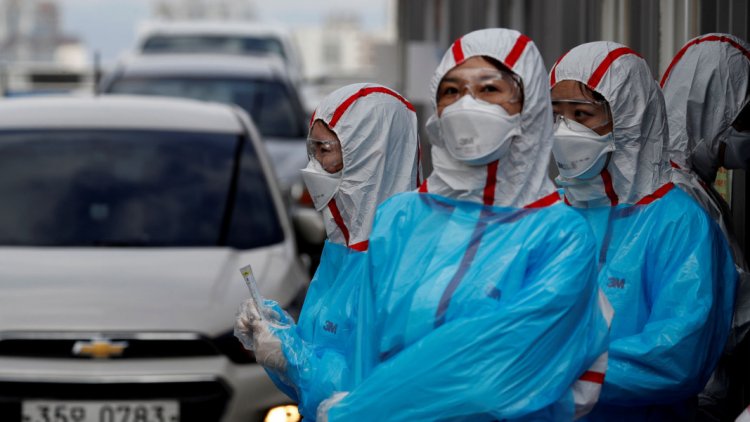Study Says Nearly 100,000 Catching Virus Everyday

Nearly 100,000 people are catching coronavirus every day in England, a major analysis suggests.
The study, by Imperial College London, says the pace of the epidemic is accelerating and estimates the number of people infected is now doubling every nine days.
The authors say we are at a "critical stage" and "something has to change".
France and Germany have turned to forms of lockdown to control the virus.
Communities Secretary Robert Jenrick told BBC Breakfast the government wanted to "try to avoid having a national blanket approach" to coronavirus restrictions in England, where a regional three-tier alert system is in place.
"We don't have a plan, today, to do a full national lockdown," he said, adding such a move "would be destructive to people's lives and livelihoods and broader health and wellbeing".
A national "firebreak" lockdown is ongoing in Wales, while Northern Ireland has tightened restrictions, including closing schools, and Scotland will later confirm details of its new tiered alert system.
Labour's shadow health secretary Jonathan Ashworth called for Prime Minister Boris Johnson to hold a news conference to outline "steps he will now take to get control of the virus and save lives".
Experts are warning that we are fast approaching the peak in infections seen in the spring.
The React-1 study is highly influential because it is the most up-to-date assessment of Covid-19 in the country, with the last swabs taken only on Sunday and nearly 86,000 volunteers taking part.
A further 24,701 new coronavirus cases were reported on Thursday - but the Imperial College study randomly tests asymptomatic people to estimate the number of overall new infections.
While cases are currently highest in northern England, infections are surging more rapidly in southern parts.
The study compared the latest swabs collected between 16 and 25 October with the last round of swabs, between 18 September and 5 October.
It found that, on average, every infected person in London was passing on the virus to nearly three other people - although there is some uncertainty in the figure, it is the highest estimated rate in England.
Prof Steven Riley, one of the authors, told BBC Radio 4's Today programme the government may need to "think about changing the approach" in England.
"I think lockdown as a phrase is inhibiting us a little bit," he said. "I think what our study shows is there would be genuine benefits to some kind of national policy in that we could prevent the pattern in the South turning into the current pattern in the North and bring about a reversal in the North as quickly as possible."
He added that "sooner is better" when it comes to making a decision on national restrictions.
Dr Mike Tildesley, professor of infectious disease modelling at the University of Warwick and adviser to the government, told Today there needed to be "urgent... rapid action" to avoid a further rise in infections next month.
He described the current regional approach as "firefighting" and said some form of national measure in England would help prevent areas moving up into higher restrictions.















































